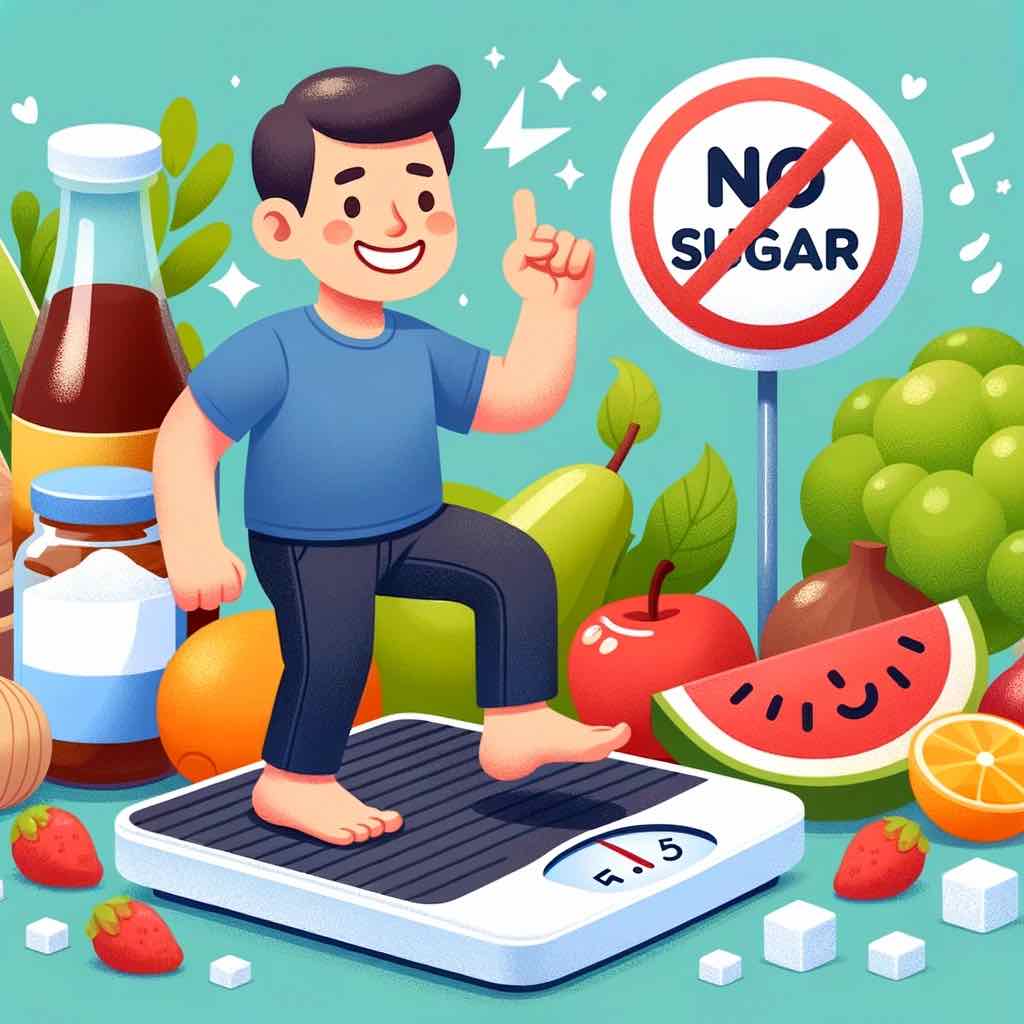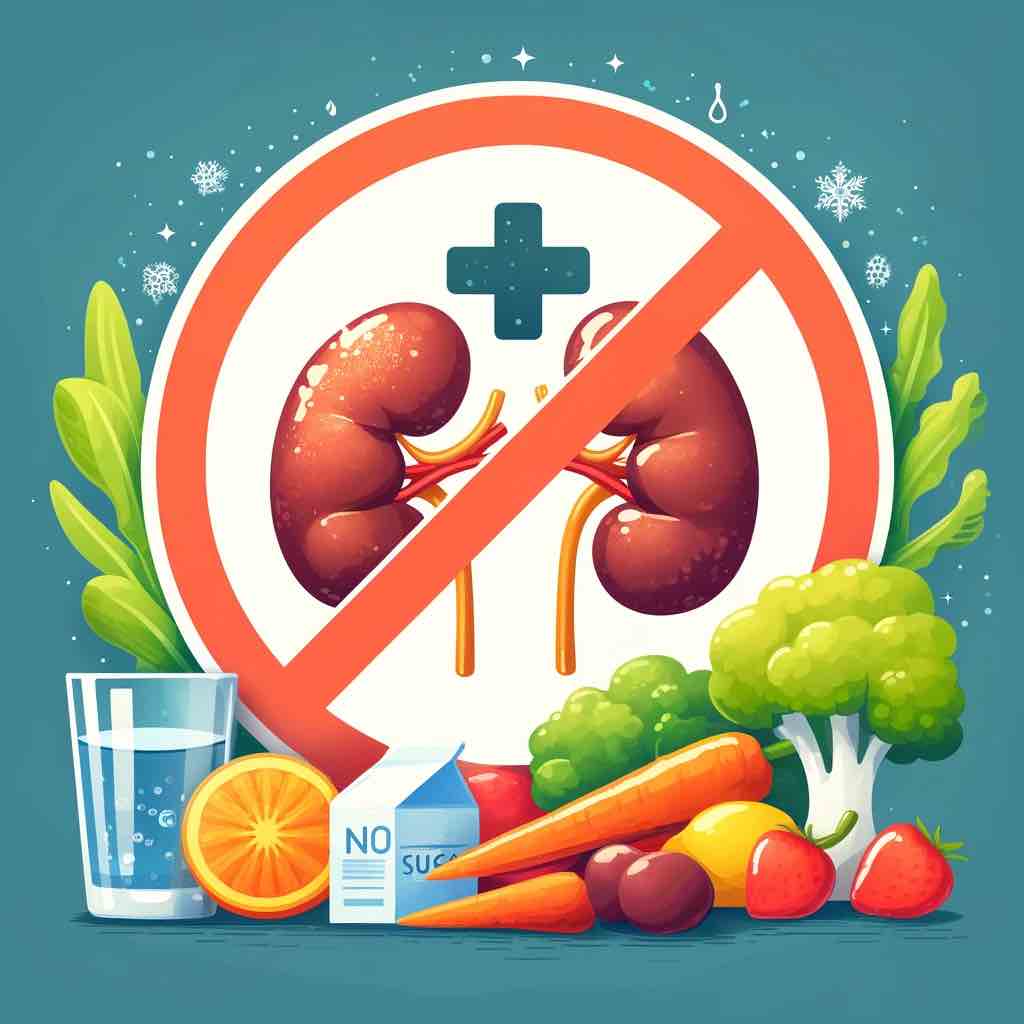Sugar, a common ingredient in many foods and beverages, poses negative effects when consumed in excess (like everything). We all know that. Most Americans and Britons, for instance, consume on average between 60 and 77 grams of processed sugar daily, twice the recommended limit for optimal health.
In fact, a large review of 73 meta-analyses found that heavy consumption of added sugar was associated with 45 negative physical outcomes, including diabetes, gout, obesity, high blood pressure, heart attack, stroke, cancer, asthma, tooth decay, depression, early death, and the list goes on and on. But there’s a way out. As an experiment, let’s explore what happened if you stopped consuming sugar for two weeks and how it could benefit your body and mind.
Today’s Focus of Attention is reader-supported. We sometimes include products we think are useful for our readers. If you buy through links on this page, we may earn a small commission.
You Lose Excess Water and Fat
You will notice a decrease in your weight because sugar induces liquid retention and lipid tissue storage.
According to nutritionist and author Dr Eric Berg, you could shed up to 5 kilos in the first week of quitting sweet stuff. Moreover, avoiding sugar helps reverse Fat Storing Hormone (FSH) resistance, a condition that hampers your body’s fat-burning efficacy.
By regulating your blood sugar levels and improving your nutrient absorption, you burn more adipose tissue.
The American Journal of Clinical Nutrition discovered that people who reduced their sugar intake by 40% for 10 weeks lost an average of 2.86 kg of fat.

You Are More Energetic

When you eat anything sweet, your body releases a Fat Storing Hormone (FSH) to lower your blood sugar concentration. Nevertheless, an excess of this hormone leaves you feeling hungry, irritable, and lethargic.
Staying away from sugar stabilises your glycemic levels, mitigates FSH secretion, and enhances your mental clarity and focus.
A study published in Physiology & Behaviour found that those who consumed a low-sugar breakfast had better cognitive performance and mood than those with a high-sugar morning meal.
Bottom line, you’ll experience an energy boost throughout the day since sweetened foods cause spikes and crashes in your blood sugar levels, affecting your neural activity and emotional state.
Improved Skin and Appearance
Regular sugar intake triggers inflammation and glycation in your skin cells, impairing the proteins – collagen and elastin – that keep your skin’s firmness and elasticity.
Collagen and elastin give your body surface its youthful, supple properties. But when they are degraded by sugar molecules, they lose their ability to hold moisture and prevent wrinkles.
Dr Anthony Youn, a plastic surgeon and author of ‘The Age Fix,’ suggests that notable improvements in skin quality can be observed within 14 days of quitting sugar.

No More Appetite for Sweets

It’s a proven fact that sugar consumption activates a hormone that lowers your blood sugar, creating a cycle of sugar cravings. However, by eliminating it from your foods, you get rid of your sweet desires, too.
Mood Boost
There’s no doubt that a sugar-free eating plan brightens your day. If you’ve been irritable, the dietary change may lead to a calmer and less stressed disposition.
As a result, your cognitive functions improve, such as your focus and attention on important matters.

Liver and Kidney Health

Both of these organs thrive on a zero-sugar diet. The liver, central to glucose metabolism and blood sugar regulation, suffers from excessive sugar intake, which alters the fat chemical process and contributes to fatty liver disease.
At the same time, the liver detoxifies various metabolites, but high sugar levels impair this task, leading to a buildup of harmful substances in the body.
Similarly, sugar overload strains the kidneys, which are responsible for filtering waste from the blood. But when these values are over the top, the kidneys struggle to remove the excess sugar, increasing urination and causing possible dehydration.
Also, prolonged elevated blood sugar can damage the vessels, bringing about a condition called ‘nephropathy.’
When sweets are out of your system, your body heals itself and keeps the right amount of sugar and fat, enhancing the normal functions of your organs.
Do Not Substitute Sugar with Artificial Sweeteners
Quitting sugar doesn’t mean you should rush to the supermarket and buy artificial sweeteners; in fact, doing so would be a huge mistake, as artificial sugars have been linked to everything from an increased appetite to cancer.
Let’s take the case of one of the most popular sweeteners on the market today: erythritol. While the FDA considers erythritol as a healthy substitute for sugar, it was recently linked to a higher risk of stroke. Furthermore, its health impacts may extend beyond. New research presented at the 2025 American Physiology Summit found that this sweetener set changes in motion in cells that could increase the risk of heart attack and stroke. Erythritol is added to a huge range of sugar-free foods such as energy drinks, snacks, protein bars, and even in some toothpastes and mouthwashes. It’s also used in brands like Halo Top ice cream, Quest bars, and Vitaminwater Zero amongst many others. Another study from the University of Colorado Boulder also reaches the same results.
What is Erythritol?
Erythritol is a low-calorie sugar substitute that doesn’t impact glucose and insulin levels as much as sugar and is marketed as a ‘natural’ sugar substitute. The problem is that when consumed in excess – and many people do consume it in excess – it brings health risks in the short and long run.
Study Findings
To investigate the effects of this sweetener, researchers treated cells from the blood vessels in the brain with erythritol and discovered that the cells exposed to only one drink serving of this “sugar substitute” had higher levels of oxidative stress (an imbalance in the body that damages cells leading to ageing and raising the risk of cancer and other diseases).
Scientists also found out that cells exposed to erythritol produced less nitric oxide.
A low concentration of nitric oxide interferes with blood flow, limiting blood vessels’ ability to dilate, and increasing the risk of heart attack and stroke.
Bottom line, do not change a bad thing for a worst one.
Why not aim at reducing or eliminate added sugar from your diet altogether? Your body doesn’t truly need it.
Embarking on a two-week sugar-free journey is a game-changer for your health. The myriad benefits ranging from weight loss to enhanced energy, better mood, and improved organ function make a compelling case for reducing sugar in your diet. The transition might be a little challenging in the beginning, but the rewarding outcomes could be a catalyst for embracing a long-term, healthier lifestyle. Will you take this challenge?



6 thoughts on “What Happens When You Quit Sugar for Two Weeks: The Benefits of a Sugar-Free Diet”